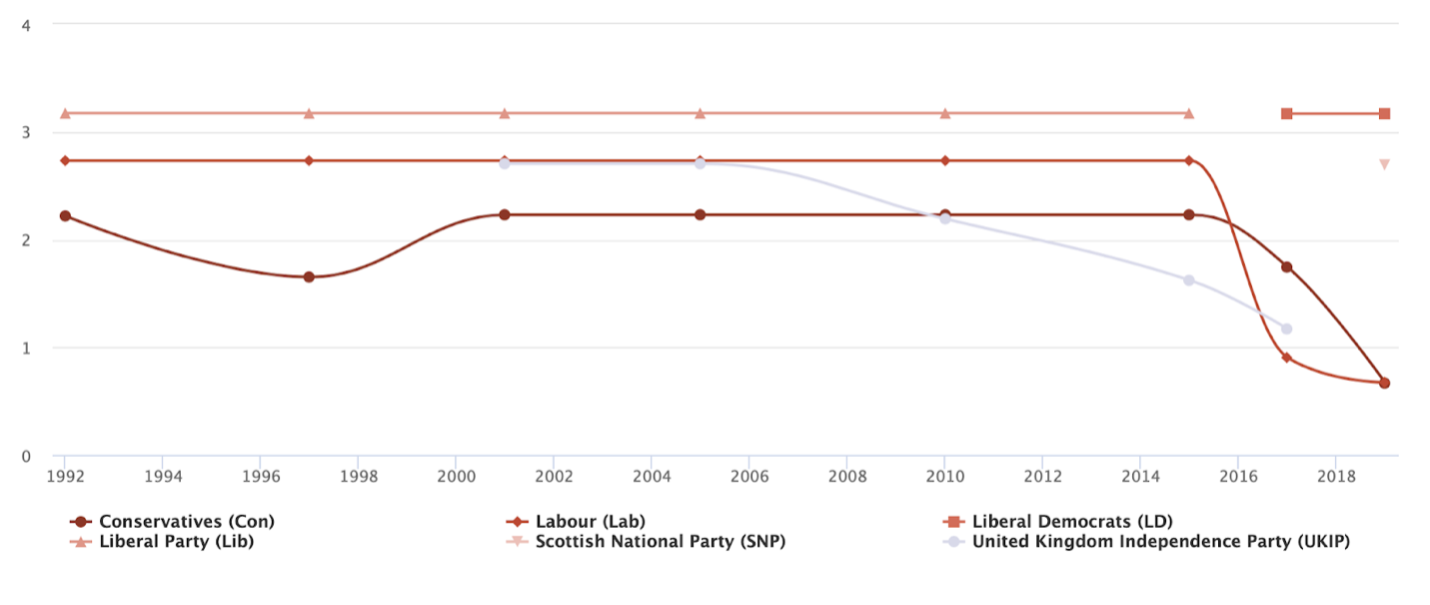Party cohesion in the United Kingdom
By: V-Dem Staff
Mar 28, 2023
This week’s graph shows parties’ levels of internal cohesion agreement over political strategies in the United Kingdom between 1992 and 2019 using the V-Party Dataset. Party internal cohesion is an important feature of parliamentary democracies. Government stability and survival as well as legislative activity greatly depend on the capacity of the elected political parties to form functional political organizations.
The 2016 Brexit referendum led to significant declines in party cohesion in the two main British parties, Conservatives and Labour, and additional decline in UKIP. The call for a Brexit vote cornered party elites to form opinions on whether to ‘Remain’ or ‘Leave’. While then Conservative Prime Minister Cameron strongly opposed Brexit, fellow party members including Boris Johnson joined the Leave campaign. Similarly, Labour party leader Corbyn failed to unite the party amid the vote. His decision to support the EU withdrawal bill heightened tensions within the ideologically divided party and led to the resignation of several shadow cabinet ministers.


